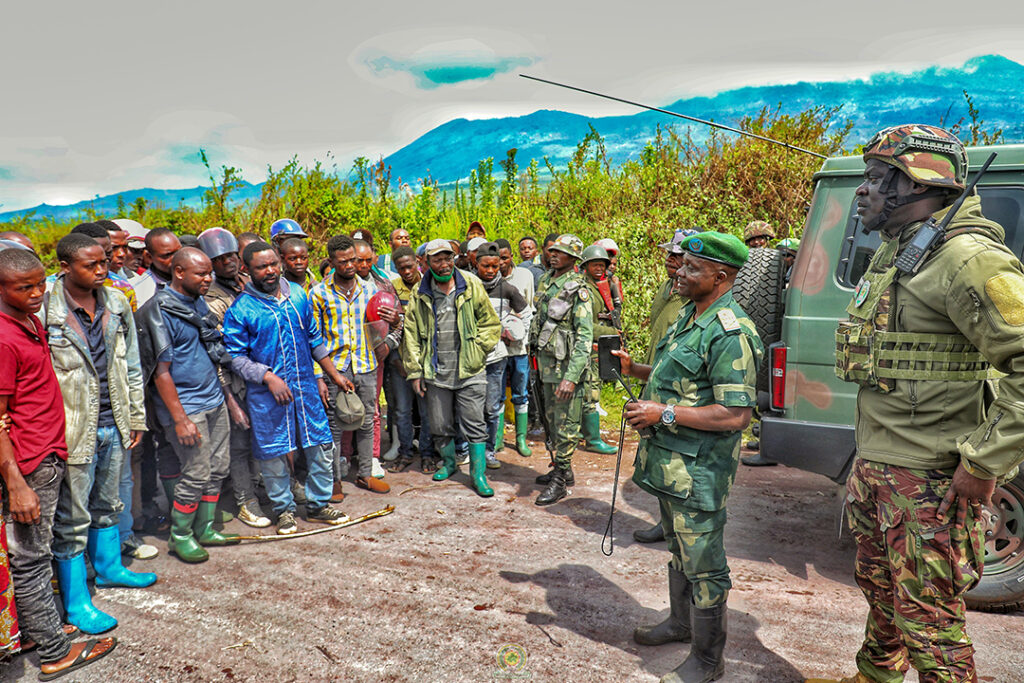ADF STAFF
With the East African Community Regional Force (EACRF) fully deployed and M23 rebels gradually withdrawing from occupied territory, there is some reason for hope in the eastern Democratic Republic of the Congo.
Still, experts warn of a larger security threat to the region based on a tragic history. Still scarred from the First and Second Congo Wars from 1996-2003, the DRC was ground zero for what some called “Africa’s world war.” As many as 6 million people died, either from fighting or from disease and malnutrition.
The notion of the “Balkanization” of eastern DRC appeared in the late 1990s at the time Rwanda and Uganda invaded the country formerly known as Zaire.
The term is used to denounce the fragmentation of a large region into smaller regions or states that are openly hostile to each other because of ethnic, religious, cultural or historical tribulations.
“The Balkanization discourse continues to be used because it has a strong emotional appeal and is therefore almost guaranteed to stir spirits,” DRC militarization expert Judith Verweijen wrote in The Africa Report magazine. “It speaks to the deeply rooted feelings of ethnic belonging.
“Moreover, it evokes traumas of violence related to the Congo Wars and subsequent episodes of armed conflict, where military interference in neighboring countries played a crucial role.”
In December, tens of thousands of demonstrators marched in Kinshasa to rally against a divided eastern DRC. They carried banners that said, “No to Balkanization. The DRC is not for sale.”
Made up of thousands of Soldiers from Burundi, Kenya, South Sudan and Uganda, the EACRF aims to calm the violence in eastern DRC.
The presence of foreign forces, however, has alarmed some.
In a February 16 memorandum to Congolese President Félix Tshisekedi, the country’s Catholic bishops said they feel “the Congolese population is trapped between wars of influence and the battle for control of its natural resources.”
“Don’t these dramatic events contribute to the implementation of our country’s Balkanization plan?”
When he visited DRC’s capital, Kinshasa, in March, French President Emmanuel Macron tried to tamp down the prospects for war.
“The DRC must not be the spoils of war,” he said at a news conference. “The blatant looting of the country must stop. No looting, no Balkanization, no war.”
In a December report on the eastern DRC, independent United Nations experts documented direct Rwandan involvement with the M23 rebel group, which is composed largely of Tutsi Congolese who resumed fighting in November 2022 after being dormant for a decade.
Rwanda repeatedly has denied the allegation.
The EACRF has issued regular reports in its role of monitoring and verifying the withdrawal of M23 rebels. It verified the withdrawal of M23 and the deployment of Kenyan and South Sudanese contingents in the town of Tongo in Rutshuru territory on April 13.
DRC government spokesman Patrick Muyaya recently acknowledged “apprehensions” surrounding the regional force, but he stressed that the EACRF deployed at the invitation of the Congolese government.
“This must not be viewed as Balkanization,” he said during an April 3 media briefing.

